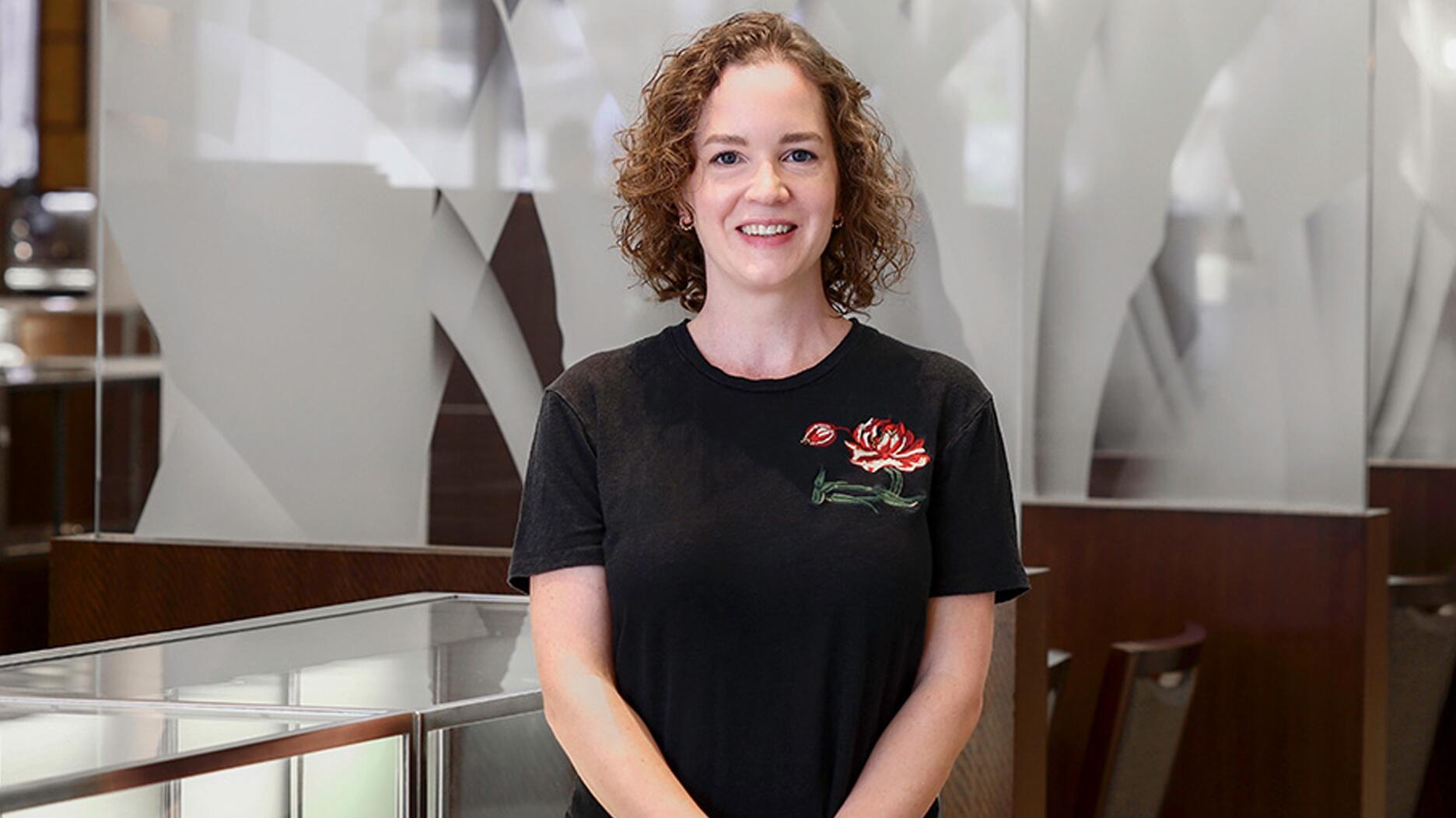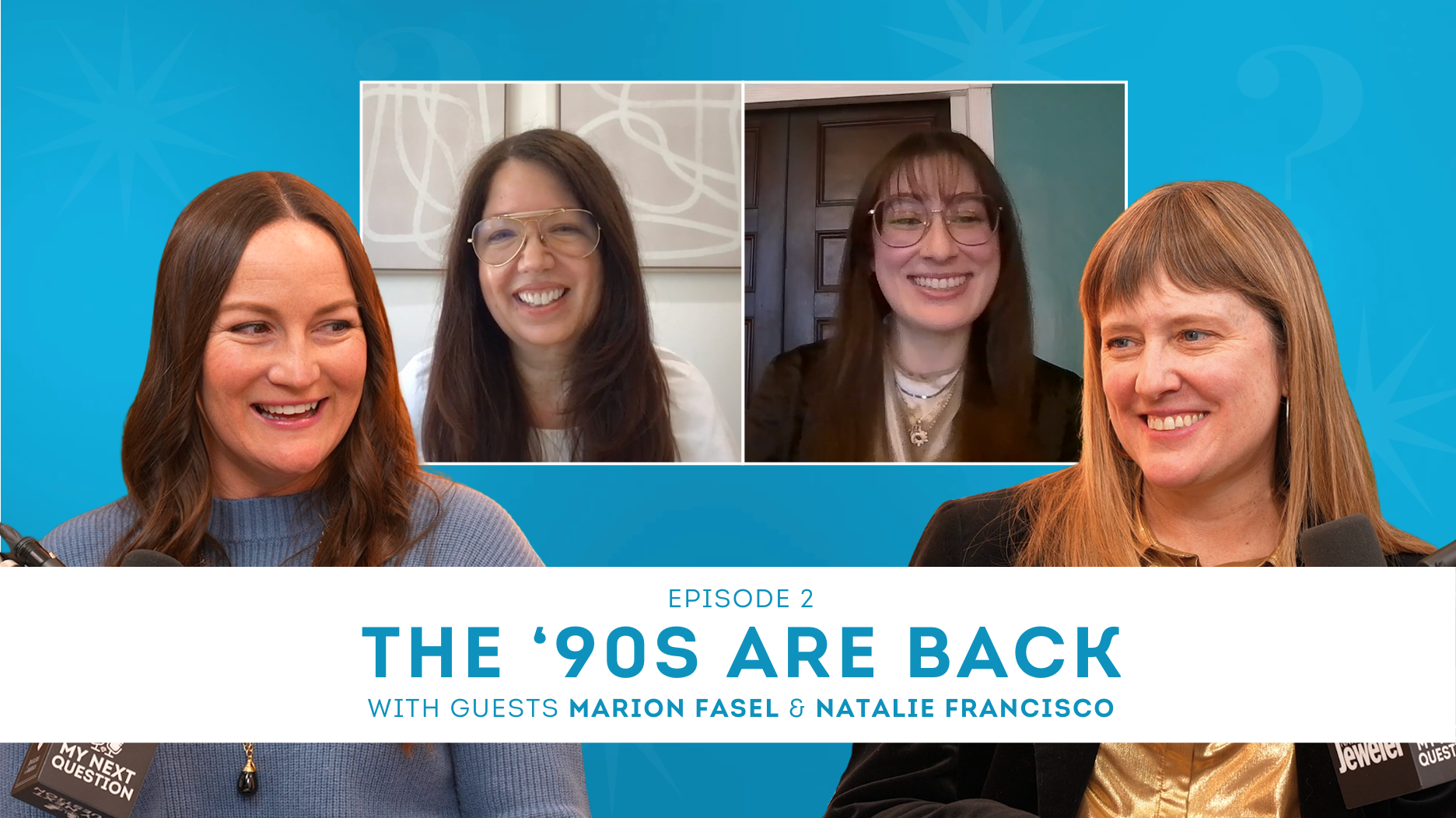Diamond jewelry was the star of the event formerly known as the SAG Awards.
Squirrel Spotting: Who Needs Jewelry?
No one really but, luckily for us, people shop with their hearts, not their heads, Peter Smith writes.

Buying jewelry makes absolutely no sense on a rational level. Even if customers had better transparency about why things cost what they cost, the idea that they pay thousands of dollars for jewelry just boggles the mind. Or does it?
Why do people buy jewelry? For that matter, why do they buy timepieces or quality writing instruments? Is it to signal that they are “in a relationship?” To “tell time?” To “write their grocery list?” Of course not.
We buy jewelry because the act of shopping itself ignites a neurological reward system in our brains that makes us feel good. Really good. Chocolate good.
Those neurological pathways have nothing to do with facts, figures or rationality, but don’t ever construe lack of rationality with a lack of need. The need is real. It is emotive, and it is often subconscious.
In “The Four: The Hidden DNA of Amazon, Apple, Facebook, and Google,” Scott Galloway wrote: “The heart is a vast market. Why? Because most of our actions, including purchases, are driven by emotion. It’s easier, and more fun, than to turn to the killjoy brain for a predictable cost-benefit analysis, where the answer to ‘Should I buy this?’ is usually ‘No.’”
When a customer walks into your jewelry store, they have a need.
It might not be a readily identifiable occasion, such as a marriage, birthday or anniversary, but it is no less a need. In fact, I might suggest that a “no occasion” visit is filled with just as much possibility as one of the aforementioned milestones.
“Overloading customers on meaningless information is not a recipe for sales success. In fact, it’s probably the single biggest detriment to engaging customers.” — Peter SmithWhen we anticipate rewards—owning and wearing something beautiful, something that our friends and family will notice, something that will set us apart—we get a dopamine rush in our brains that supersedes any menu of details and product information offered by many salespeople
If you have ever found yourself wondering how a specific salesperson is so successful despite not being a product expert, the answer lies in that rush of dopamine.
Those salespeople are successful because they consistently tap into the emotional reasons that people make buying decisions. They don’t waste time tripping over meaningless product details and rationalizations.
That does not mean that a salesperson should not have a functional knowledge of the products they are selling, but it does mean
I used to work with a guy who liked to challenge the idea of making assumptions. He would frequently admonish that to “assume” is to make an ass of you and me. Get it … ass-u-me.
With respect, here’s my take: Always assume that a customer will buy when he or she visits your store. No exceptions.
Believing that customers visit your store to kick tires is unforgivable. The customer might not be able to immediately articulate why she or he is there but make no mistake, there is a very powerful reason.
It’s our job to make that emotional connection and to inspire them to reward themselves with a beautiful piece of jewelry.
Peter Smith is president of Vibhor, a public speaker and author of “Sell Something” and “Hiring Squirrels.” He spent 30 years building sales teams in retail and wholesale and he can be contacted at dublinsmith@yahoo.com, peter@vibhorgems.com, or on LinkedIn, Facebook or Twitter.
The Latest

Consumers were somewhat less worried about the future, though concerns about rising prices and politics remained.

Foerster is this year’s Stanley Schechter Award recipient.

Every jeweler faces the same challenge: helping customers protect what they love. Here’s the solution designed for today’s jewelry business.

Sponsorships and tickets to the annual fundraising event, set for May 31, are available now.


Chicago police and members of the U.S. Marshals Service tracked down the 35-year-old suspect earlier this week in St. Louis.

Owners of the Ekapa Mine reportedly filed for liquidation about a week after a mudslide trapped five workers who have yet to be found.

With refreshed branding, a new website, updated courses, and a pathway for growth, DCA is dedicated to supporting retail staff development.
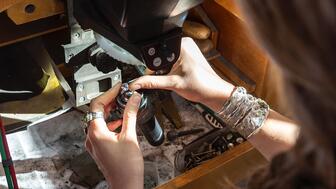
A 10-year alliance has also begun to address the shortage of bench jewelers through scholarships, enhanced programs, and updated equipment.
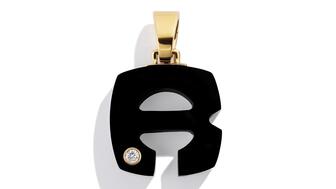
The “Splendente” collection has evolved to feature hardstone letter pendants, including our Piece of the Week, the onyx “R.”
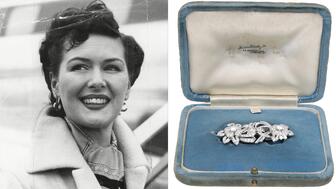
The jewelry collection belonged to “one of society's most glamorous and beautiful women of the mid-20th century,” said the auction house.
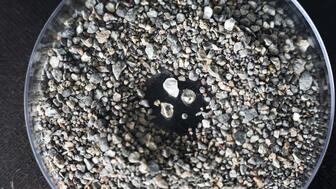
The update came as Anglo took its third write-down on the diamond miner and marketer, which lost more than $500 million in 2025.
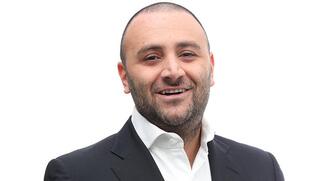
Emmanuel Raheb discusses the rise of “GEO” and the importance of having well-written, quality content on your website.
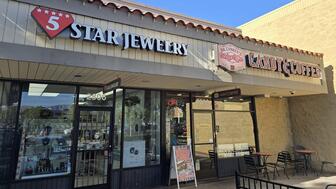
Each received around four years for burglarizing a jewelry store and a coffee shop in Simi Valley, California, last May.

Catherine Aulick, a GIA graduate, received the ninth and final Gianmaria Buccellati Foundation Award for Excellence in Jewelry Design.
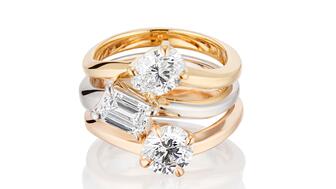
We asked a jewelry historian, designer, bridal director, and wedding expert what’s trending in engagement rings. Here’s what they said.
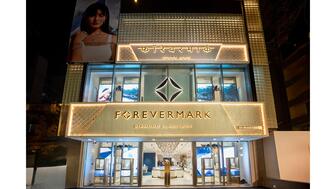
Experts from India weigh in the politics, policies, and market dynamics for diamantaires to monitor in 2026 and beyond.

Beth Gerstein discusses the vibe of the new store, what customers want when fine jewelry shopping today, and the details of “Date Night.”

Are arm bands poised to make a comeback? Has red-carpet jewelry become boring? Find out on the second episode of the “My Next Question” podcast.
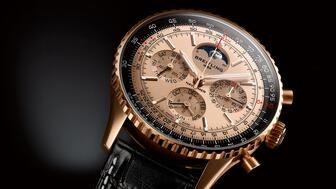
The Swiss watchmaker is battling declining sales amid a rapid retail expansion, according to a Financial Times report.

The campaign celebrates Giustina Pavanello Rahaminov, the co-founder’s wife and matriarch of the family-owned brand, for her 88th birthday.

After the Supreme Court struck down the IEEPA tariffs, President Trump imposed a 10 percent tax on almost all imports via a different law.
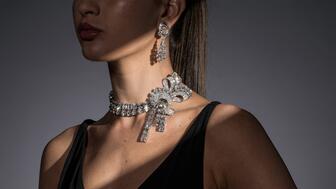
The vintage signed jewelry retailer chose Miami due to growing client demand in the city and the greater Latin American region.

Former Flight Club executive Jin Lee will bring his experience from the sneaker world to the pre-owned watch marketplace.
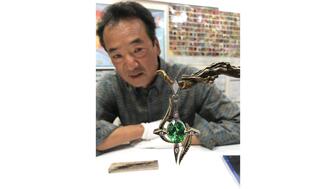
Sakamoto, who died in mid-January following a sudden illness, is remembered for his humility and his masterful, architectural designs.
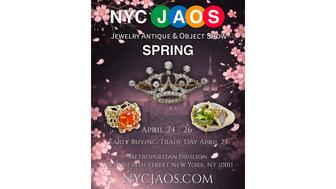
The April event will feature a new VIP shopping day requiring a special ticket.

Bulgari chose the British-Albanian singer-songwriter for her powerful and enduring voice in contemporary culture, the jeweler said.










